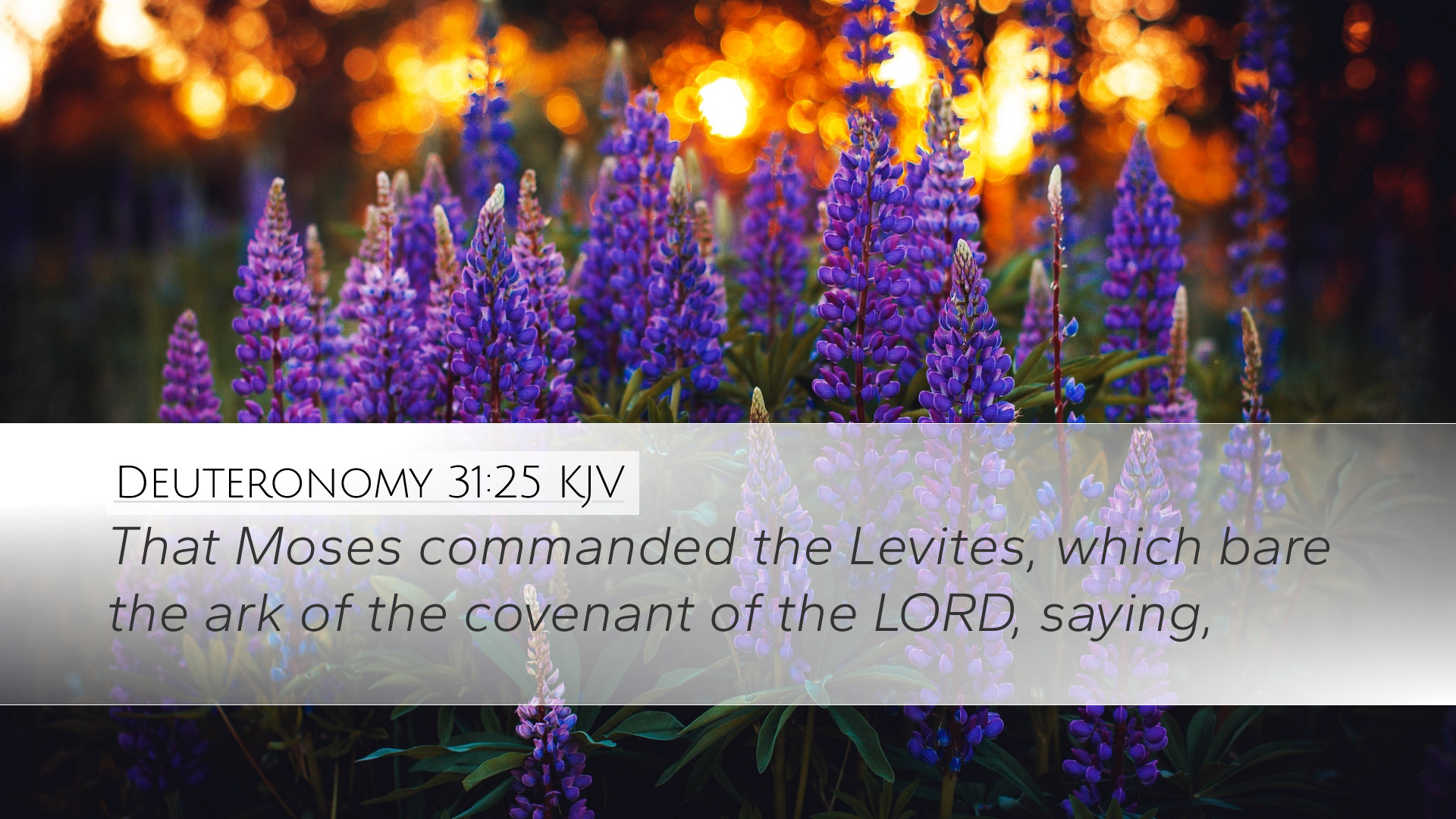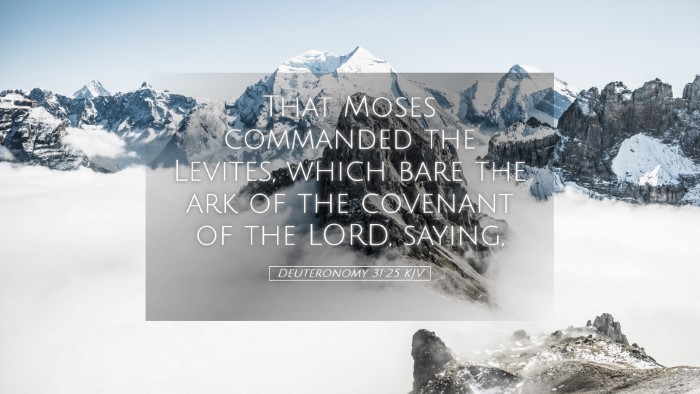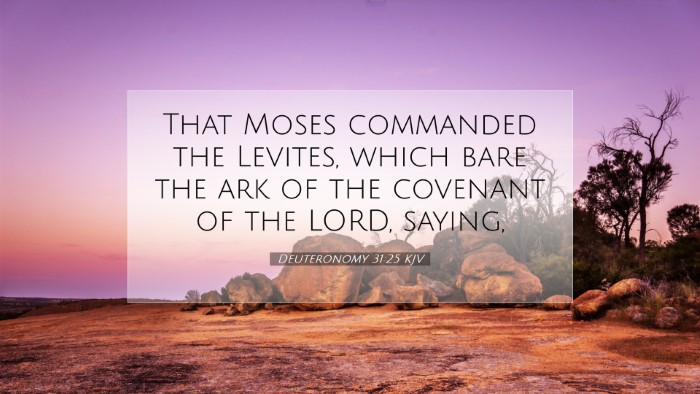Commentary on Deuteronomy 31:25
Introduction
Deuteronomy 31:25 states: "Moses commanded the Levites, who carried the ark of the covenant of the Lord, saying..." This verse captures a significant moment in the life of Israel as Moses prepares to transfer leadership and deliver essential commands regarding the future of God’s people. The insights drawn from various public domain commentaries help elucidate the implications of this verse.
1. Contextual Background
The context of Deuteronomy 31 is crucial for grasping the full meaning of verse 25. Moses is on the verge of death and is addressing the Israelites. This chapter includes Moses' charge to Joshua, the upcoming transition of leadership, and warnings against turning away from God.
2. The Role of the Levites
Moses' command to the Levites is strategic and significant. The Levites, being the tribe set apart for service, played a pivotal role in maintaining the covenantal worship and fidelity to God.
- Matthew Henry: He emphasizes that the Levites have a sacred duty and are set apart for the worship of God. Their role in carrying the ark signifies their responsibility in the spiritual leadership of Israel.
- Albert Barnes: Barnes notes that the Levites were not only carriers of the ark but also teachers of the law. Their commitment to instructing the people was vital to ensuring that generations would follow God’s decrees.
- Adam Clarke: Clarke correlates the functions of the Levites with their need for spiritual readiness, pointing out that their tasks involve much more than physical labor; it combines devotion and a clear understanding of biblical mandates.
3. The Command of Moses
Moses’ command to the Levites serves as a transition point from the old generation to the new. His instructions underscore a need for vigilant adherence to God’s law and a faithful remembrance of the covenant.
- Moses as a Leader: Both Henry and Barnes highlight Moses' role as a leader who does not just give commands but is also responsible for ensuring that the community follows God's will.
- The Emphasis on the Covenant: Clarke notes that Moses’ directive is framed within the context of the covenant – a continual reminder of God’s promises and the community's obligations.
4. Theological Implications
This verse and its surrounding context bear profound theological significance. The emphasis on the Levites captures the essence of mediating God’s presence among His people.
- Covenantal Theology: The Levites symbolize the ongoing relationship that Israel has with God. They represent both the commitment of God to His people and the commitment of the people back to God.
- Leadership and Responsibility: The transition of leadership from Moses to Joshua, as prompted by this command, emphasizes that leadership within God's community always comes with tremendous responsibility.
- Spiritual Fidelity: The reminder that the Levites must uphold the law speaks to the perennial need for God's people to remain faithful and diligent in spiritual matters.
5. Application for Pastors and Leaders
The insights from Deuteronomy 31:25 offer profound guidance for pastors, leaders, and scholars:
- Importance of Preparation: Just as Moses prepared the Levites, leaders today must prepare those who will follow them, ensuring that they understand their roles and responsibilities.
- Commitment to God’s Word: The Levites’ role underscores the necessity of grounding the community in Scripture and being diligent in teaching and living out biblical truths.
- Responsibility in Leadership: Leaders are reminded of their accountability not only to their congregations but also to God. Tasks must be undertaken with seriousness and sacred intent.
6. Conclusion
Deuteronomy 31:25 is a pivotal verse that reveals the transition of leadership and the responsibilities placed upon the Levites to uphold God’s covenant. The combined insights from Matthew Henry, Albert Barnes, and Adam Clarke reflect upon the enduring principles of leadership, fidelity to God’s law, and the continual need for preparation and instruction within the community of believers. It urges modern-day leaders and congregations to commit seriously to their roles and understand the weight of the covenant shared with God.


